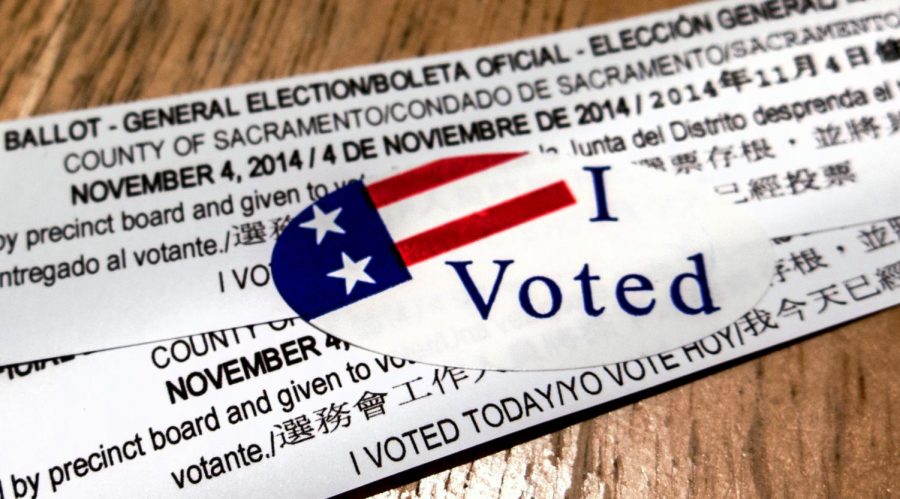In a recent New York Magazine profile, Alexandria Ocasio-Cortez was asked what she thought her role would be in a potential Biden administration were he to win the 2020 election. Her response? “‘Oh God,’ she said with a groan. ‘In any other country, Joe Biden and I would not be in the same party, but in America, we are.’”
I agree with Ocasio-Cortez on very few occasions, but in this case, she is right. The sentiment she expresses exposes a common misconception: that political parties in the United States are absolutely homogeneous.
This misconception is particularly common among members of one political party who comment on members of the other. Republicans tend to think most Democrats are socialists and Democrats believe Republicans are rapacious capitalists. Despite these exaggerated labels, Republicans are mostly conservative and Democrats are usually progressive.
There are many different strains of thought on both the right and the left. As someone who spends a lot of time entrenched in conservative media, I am aware of a wide breadth of ideas being expressed on the right.
President Trump is most prominently featured as the standard-bearer of the Republican Party, which is fitting because of his political position. However, his brand of conservatism is very different from many traditional conservatives, and many on the right have expressed outrage at his representation of the movement. National Review, the prominent U.S. conservative magazine, came out “Against Trump” in 2016, before he won the Republican primary. President Trump has eschewed many traditionally conservative principles in favor of his own. He liberally employs tariffs; he is relatively isolationist (as shown by his removal of troops from Syria and his desire for peace talks with the Taliban); and his various scandals demonstrate his unwillingness to conform to traditional conservative morals.
Unfortunately, Trump is so vain yet politically powerful that he shuts down any dissent from his own party, as he did when he ridiculed former Republican Justin Amash for leaving the party in a show of defiance against the President. This lends credence to the erroneous idea that the Republican Party is, was, and always will be the party of Trump.
There are, however, countless strains of conservatism. Tucker Carlson of Fox News represents a right-wing populism that is often aligned economically with progressives like Elizabeth Warren. Carlson regularly rails against the “wealthy elites” and calls for strict regulation of Big Tech – except for him, the ultimate goal is to establish a form of cultural conservatism in America.
There are also more traditional conservatives who are Trump-skeptical and positively oriented towards free trade and religious liberty protection. Examples of this faction include Jonah Goldberg and David French, both of whom were formerly affiliated with National Review but who now write for Goldberg’s creation, “The Dispatch”, a new conservative news site.
Additionally, there are strains of conservatism that fit within this spectrum and beyond, including libertarianism and the “compassionate conservatism” that was popularized by George Bush.
The differences on the left are being battled out on the national stage. The center-left moderates are represented by Democratic presidential candidates Joe Biden and Amy Klobuchar and have made their moderate agendas key aspects of their campaigns. They are constantly being besieged by the radical wing of the Democratic Party, as represented by Bernie Sanders, Elizabeth Warren and occasionally the New York Times Editorial Board. This faction would like for there to be a “revolution,” in Bernie’s words, and are tired of the “incremental change” being advocated for by Biden and other moderate democrats.
One of the more disheartening aspects of the time in which we live is that traditional conservatives, like myself, and moderate progressives, like many of my friends, often feel politically homeless in the parties that supposedly represent our ideals. The trajectory of both parties seems to be toward the extremes, which leaves people in the middle feeling left out. This, however, is not to suggest that we shouldn’t have a two-party system. The parties have historically worked to gather together enough of a coalition to effect public policy that advances their general ideals. I don’t want to throw the baby out with the bathwater; I simply wish to see the parties reassert themselves against hostile takeovers by the extreme wings.
There is no doubt that party affiliation is an integral aspect of political life. However, it is always important to place ideals before party. I value conservatism much more than I value the Republican Party, as I’m sure many progressives value progressivism over the Democratic Party. So next time you accost a Republican for being a die-hard Trump supporter, or decry a Democrat’s socialist tendencies, remember that they may not actually believe in the things that the loudest members of their coalition shout from the treetops.
Greg Fournier is a Collegian columnist and can be reached at [email protected].




















Ed Cutting, EdD • Jan 24, 2020 at 9:25 am
Liz Warren is going to have a hard time explaining her pro-big business court filings and legal writing — they are hard to read because of the legalese but she’s to the right of Ronald Reagan at times.
Donald Trump is a POPULIST and the basic split between D&R is one of a split between Progressives and Populists.